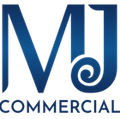The body corporate functions as the governing body for all unit owners, facilitating the management and maintenance of common property and ensuring compliance with relevant laws. Here’s how it operates:

Committee and Chairperson
The body corporate is typically managed by a committee elected by the unit owners. This committee is responsible for making decisions regarding the management of common property, maintenance issues, and financial management. A chairperson is elected to lead meetings and represent the body corporate.

Annual General Meetings (AGMs)
The body corporate is required to hold at least one AGM each year. During these meetings, unit owners discuss important matters, vote on decisions, and review financial reports. The transparency of the meeting allows all owners to voice concerns and participate in decision-making.

Decision-Making
Most operational decisions can be made by a simple majority of the committee or with the agreement of 50% of unit owners. However, some decisions require a higher level of agreement, such as 75% approval for significant changes or expenditures.

Financial Management
The body corporate collects annual fees, often referred to as levies, from unit owners. These fees cover costs related to insurance, maintenance, and management expenses. The body corporate must prepare financial statements and maintain a long-term maintenance fund to ensure the property’s upkeep.

Maintenance of Shared Areas
The body corporate is responsible for the maintenance of common areas and facilities. This includes regular inspections, repairs, and enhancements to shared spaces, ensuring they remain safe and appealing for all residents.
Understanding how a body corporate works helps unit owners to actively participate in the governance of their community and ensures that they are aware of their rights and responsibilities as part of the collective.



